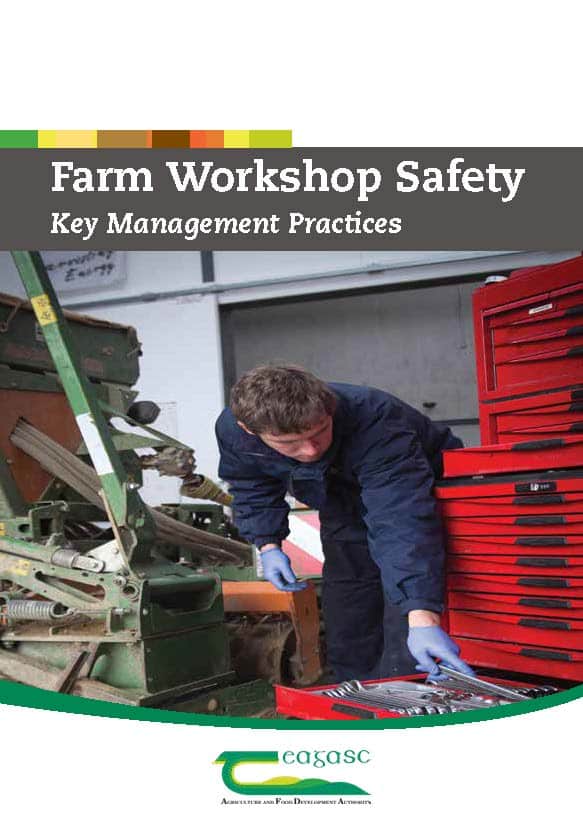
Due to the Coronavirus Emergency, now is one of the most challenging periods in our country’s history. Farmers, as food producers, are crucial to society. A farm injury is unwelcome at any time, but currently an injury would be particularly unwelcome as it could jeopardise running of a farm, require attendance at a medical facility and place more pressure on our limited health care resources.
A key to farming safely is to farm methodically, plan out all your work and put safety first. Organise all the tools, equipment and supports needed to do the work safely. A recent ESRI report, however, related to farm safety indicates that 26% of farmers ‘never, rarely or sometimes’ use safety protective equipment such as goggles and ear defenders where required.
The ESRI study also indicates that the farmers who do not use safety equipment have a 49% higher risk of having a farm accident. The study also shows that farmers who do not check agricultural machinery before use have a 59% increased risk of injury and those who do not use animal restraints have a 58% increased risk of injury.
Teagasc Health and Safety Specialist, Dr John McNamara commented that at this critical time planning ahead is critical to prevent farm injury. He stated that Teagasc has recently issued an updated version of its booklet ‘Farm Workshop Safety’ to provide guidance on key safety measures required when repairing or maintaining agricultural machinery.
Teagasc Farm Machinery and Milking Machine Specialist, Francis Quigley co-author of the Farm Workshop Safety Booklet stated: “A considerable amount of information and knowledge is needed to undertake machinery maintenance and repair. This booklet outlines concisely the key information required. A check-sheet provided within the booklet will assist famers and contractors to manage a farm workshop from a safety perspective.”
Mr Pat Griffin, Senior Inspector, Health and Safety Authority (HSA), said that the Farm Workshop Safety Booklet includes up-to-date references to standards associated with farm machinery maintenance and repair. Many dreadful farm accidents over the years have been in farm workshops associated with the maintenance and repair of farm machinery. He strongly urged farmers to take the time to read the booklet and to adopt a way of working that methodically considers safety requirements before commencing any task. The booklet adds to a comprehensive range of Farm Health and Safety publications available on both H.S.A. and Teagasc web sites, he stated.
The booklet is available online at https://www.teagasc.ie/publications/2020/farm-workshop-safety.php


